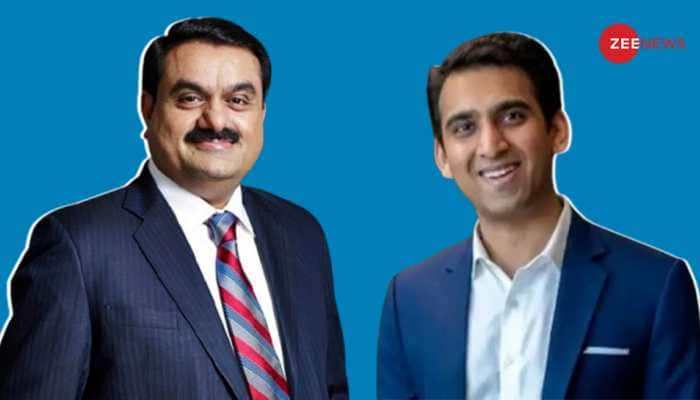The open secret behind Cyrus Mistry's exit from Tata Sons
)
Archana Khatri Das
If the appointment of Cyrus Mistry as the Chairman of Tata Sons in 2012 took many observers by surprise, his replacement from the high office on Monday- in just about four years- has sent shocked waves across the corporate world.
Tata group has always differentiated itself as not just a business making money for oneself, and believed in the philosophy of creating wealth for others. It is the legacy which Ratan Tata deftly carried on his shoulders and practically transformed the Tata group from an Indian company to a globally respected conglomerate in the span of 21 years when he ran the group.
When Cyrus Mistry took over the baton from Ratan Tata, a number of factors stating why the selection committee made the right choice in zeroing in on him were listed out. Among them: his age, the fact that his family owned the largest single equity block of 18.4% (outside of the Trusts) in Tata Sons; the tradition that every chairman of the group so far was a Parsi; Mistry's equation with Ratan Tata; his operational experience and familiarity with the functioning of Tata group; his financial acumen and international outlook-all seemed so relevant then.
All those factors, that worked in favour of Cyrus Mistry, and which made him the perfect choice for the position of the Chairman have started appearing irrelevant today.
So, what went wrong that all the favourable factors have fallen apart like the house of cards, and another committee has resurfaced to chose another Chairman for Tata Sons. The committee is expected to accomplish the task in four-months time, unlike more than a year taken by the previous selection committee to find someone to fill in Ratan Tata's shoes.
One may debate that Rata Tata's shoes were indeed too big for Mistry to fit into. When the media reports were abound with stories how Cyrus Mistry is slowly understanding the complexities of the Tata Group and is emerging out from the shadows of his predecessor, Ratan Tata, there is this news of Mistry exiting and Ratan Tata coming back as the interim Chairman.
It is known that Mistry's appointment came at a time when the Tata group's main companies were facing tough operating environments. With every year at the helm of Tata Sons as the Chairman, the pressure on Mistry mounted not just to turn around, even consolidate the stressed businesses.
Currently, out of 100 business the Tata companies are present in, the two of them—TCS and Jaguar Land Rover—are most noticeable for being a consistent performer. Two of the flagships--Tata Motors, Tata Steel--are under strain. The telecom business is not only making suffering losses, it is locked in a bitter and potentially costly battle with former partner NTT DoCoMo of Japan.
As per reports, the business of consumption-linked companies have hardly seen a compounded growth of 4% in the last five years. The health of Tata companies have rather sallowed. In 2015-16, out of the 27 listed companies, nine of them reported losses and seven of them saw the earnings drop.
The business of Tata companies entered the golden period under Ratan Tata. The economic liberalisation of 1991 was just the “second independence” Indian economy needed. Ratan Tata took that opportunity and turned his group companies from domestic giants into global conglomerates. The field was vast open for Ratan Tata to expand and grow the companies. The unveiling of Tata Indica, acquisition of Tetley, the largest Tea company in the UK, Tata AIG prtnership,Tata Motors' listing on the New York Stock Exchange, Tata Consultancy Services becoming the first Indian software company to cross $1 billion in revenue, Tata Steel acquisition of Anglo-Dutch company Corus, the second-largest steel maker in Europe, Tata Motors' acquisition of the Jaguar and Land Rover businesses from Ford- the seemingly never-ending list of successes added to the brand building of Tata group.
Cyrus Mistry's performance as the Chairman may have appeared in stark contrast top his predecessor's. But in business, there is no time to look back. He had understood that, and made amply clear that the things were getting too hot to handle, and that it was time for 'tough love' for sorting out the matters. In an interview to the group’s internal communication website Tata.com, Mistry said that there will, however, be no short cuts in taking tough decisions. “ There will always be external influencers and so-called experts, who may be motivated by immediate transactional gains, goading us on to churn our portfolio. It is important that we develop our own prognosis based on knowledge and context, keeping all stakeholders in mind. We should not be afraid of taking tough decisions for the right reasons, with compassion,” Mistry had said.
He spelled out his vision that by 2025, the Tata group would be in the top 25 global conglomerates by market capitalisation and would reach out to 25% of the global population. But, what he did not know that though the group may achieve the vision, but he may not be the one to lead the path.
Stay informed on all the latest news, real-time breaking news updates, and follow all the important headlines in india news and world News on Zee News.
Live Tv







)
)
)
)
)
)
)
)
)
)
